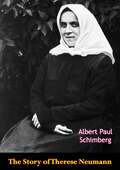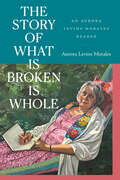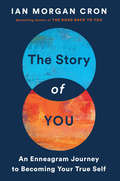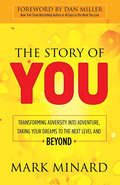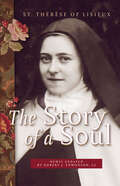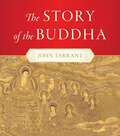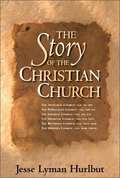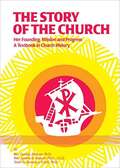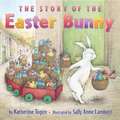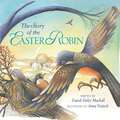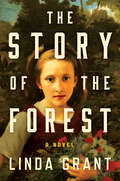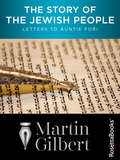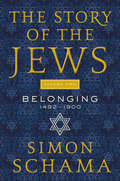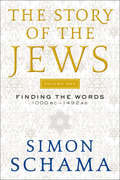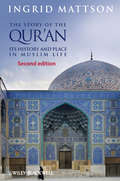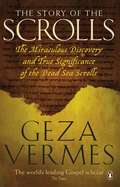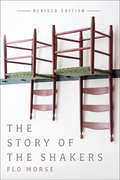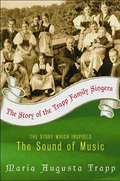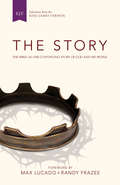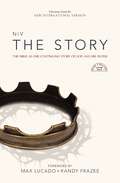- Table View
- List View
The Story of Therese Neumann
by Albert Paul SchimbergOn Thursday night, March 4, 1926, in the town of Konnersreuth, Bavaria, a young peasant woman named Therese Neumann lay in bed, very weak and ill of what had been diagnosed as influenza. Suddenly she saw Christ in the Garden of Gethsemane.“I saw Him kneeling on the ground, and I saw everything else in the garden, the trees, the rocks and also the three disciples. All at once I felt such vehement pain in my side that I thought my last moment had come. Then I felt something running down my body. It was blood.”Thus did the stigmata come to Therese Neumann. Then in September, 1927, she began a total abstinence. From that time forward she neither ate nor drank. In the thirty-five years since 1927, the world has learned of this mystic and her ecstasies, of her stigmata and her total abstinence, through books and newspaper articles and the reports of visitors to Konnersreuth. Here is a summary account of her extraordinary life.
The Story of What Is Broken Is Whole: An Aurora Levins Morales Reader
by Aurora Levins MoralesThe Story of What Is Broken Is Whole collects for the first time fifty years of writing by Puerto Rican Jewish feminist and radical thinker Aurora Levins Morales. Combining well-known excerpts from her books with out-of-print and harder to find ephemeral works and unpublished pieces, this collection weaves together stories of bodies, ecologies, Indigeneity, illness, travel, sexuality, and more. As Levins Morales reflects on her use of storytelling as a tool for change, she gathers the threads of lives and places sacrificed to greed and extraction while centering care for our individual bodyminds and those of our kin, communities, and movements. This comprehensive and essential collection provides an unprecedented window into the breadth and depth of the work of one of the most significant thinkers of our time.
The Story of You: An Enneagram Journey to Becoming Your True Self
by Ian Morgan CronThe author of the bestselling The Road Back to You reveals how to use the power of the Enneagram—the ancient personality typing system—to overwrite the negative, outdated stories you tell yourself to ultimately become your true self.In this powerful, transformative guide, Ian Morgan Cron demonstrates the life-changing power of the Enneagram. Cron challenges you to rethink the stale stories you tell yourself about who you are and offers lessons in using the Enneagram to help you change your story. As you free your mind from the outdated messages you learned in childhood and master your Enneagram profile, you unlock your own inner power for spiritual growth—and, ultimately, for becoming the true self God meant for you to be.Drawing on his extensive counseling and personal experience, Cron examines each of the nine personality types and explains step by step how each can find happiness by understanding their origin story, harnessing your type’s strengths, acknowledging weaknesses, and creating space for an incredible—and more positive—new reality.
The Story of You: Transforming Adversity into Adventure, Taking Your Dreams to the Next Level and Beyond
by Mark MinardIn this hopeful book, Mark shares his journey of early heartache, tragedy, and bad decisions—and his continued search for answers. While those experiences could have left him trapped in anger, fear, and mediocrity, he discovered that he was not trapped (or a victim)—he had a choice! He could move beyond the fear and negative emotions to live a life of adventure with a big WHY. The Story of You will take you along the journey of Mark&’s mindset as you discover how he began filling his mind with faith-building thoughts. The Story of You will challenge you to open up your heart and discover how the unexplained and often unwelcome events in your lives can move you towards the greatness intended for each of us, because impossible is where every great adventure begins.
The Story of a Soul: St. Therese of Lisieux, Updated Edition
by Robert J. Edmonson Therese of LisieuxDiscover the Timeless Wisdom and Heart of St. ThÉrÈse of Lisieux Experience The Story of a Soul like never before with this complete and unabridged translation of St. ThÉrÈse of Lisieux's timeless autobiography. Every word of the original text is preserved, capturing the vibrant spirit of the young woman whose "Little Way" continues to inspire millions. St. ThÉrÈse, affectionately known as "The Little Flower," shares her extraordinary journey of faith, humility, and love in a simple yet profoundly moving narrative. First published shortly after her death in 1897 at just 24 years old, her story became an instant bestseller, captivating readers with its delightful blend of humor, honesty, and heartfelt devotion to God.
The Story of the Buddha
by John TarrantFor readers of mythology, an original and introspective journey through the life of the Buddha accompanied by 26 beautiful color illustrations and 8 meditations.From longtime Zen teacher and poet John Tarrant, this is an original retelling of the foundational myth of Buddhism—the life of the Buddha. Told and retold for centuries, this story holds a special place in the human legacy because it is, ultimately, an investigation of the nature of mind and consciousness. Literary-minded readers and fans of myths and folklore will be especially drawn to the Buddha&’s encounters with kings, gods, heroes, monsters, and wise teachers in his spiritual quest.In this captivating narrative, the author leans into his memories of the Egyptian and Greek myths he encountered as a child. &“If we pour ourselves into the story of the Buddha,&” he writes, &“we enter the journey from an unusual place as far as myths go; we begin where the Odyssey ends.&” The Buddha already had everything—a palace, family, food, wealth—yet he was suffocating with discontent. He needed to embark on a journey involving pain, searching, magic, and personal discovery. This led to his awakening and the teachings that form the basis of Buddhism.John Tarrant frames the story with an intimate, inquisitive introduction and postscript that reflect his decades of studying koans and will resonate with a broad readership. The story of the Buddha is personal—it becomes your own story, opening an unexpected path to awakening. If you listen to the images that arise in its telling, you can find where you are in life and where you are headed.The Buddha&’s story becomes more personal with the concluding section of reflections and eight meditations about his life drawn from the Zen tradition. The book&’s gorgeous full-color historical illustrations of characters and events in the Buddha&’s life enrich the narrative journey. This lovely little book is a meaningful gift or addition to your own bedside or coffee table.
The Story of the Christian Church
by Jesse Lyman HurlbutNo institution has spanned more centuries and more continents than the Christian church. Its dramatic story is one of bloodshed and peace, corruption and purity. Here Dr. Hurlbut retells this story in an objective, concise, and clear style, emphasizing the spirit of the church, its growth and maturation, and the causes leading to historic events and their resulting influence. Accurate, up-to-date, and vividly presented, Hurlbut's Story of the Christian Church traces the six general periods of church history from A. D. 30 to the present day. A concluding section, covering the period since Dr. Hurlbut's death, has been added in this revised edition, thus giving the reader a complete, easily understood overview of the Christian church. Designed for two audiences, this book contains outlines and references in the margins to aid the student or teacher along with a continuous narrative and numerous illustrations for the general reader. It is ideal for Sunday school use, since it includes suggested outlines and review questions for each chapter at the end of the book.
The Story of the Church
by George Johnson Jerome Hannan M. DominicaTo know and to understand the Church is a sacred duty for every Catholic. The Church is not just an organization to which we belong; it is an organization of which we are a part. Loyalty to the Church is not merely one among many loyalties. It is the one great loyalty of our lives in which all other loyalties are rooted and from which all derive their life and strength. <p><p>For the Church is Christ and in the Church we are united with Him and with one another as members of one Body. Hence, a burning love for the Church must always be an outstanding characteristic of a good Catholic. <p><p> THE STORY OF THE CHURCH has been written for boys and girls with the hope that, as they learn from the story that it tells, their love of Christ in His Church will increase and that a lifelong interest in Church History will be enkindled. As much as possible we have tried to weave our story around the great men and women who in every age have labored heroically for the spread of the Kingdom of Christ and who have won for themselves the most glorious title that can be given to a human being, the title of Saint. Christ lived in them and through them revealed to the world the power and the beauty of His Gospel. (From the Author s Preface.)
The Story of the Easter Bunny
by Katherine TegenOn a snow-cold day in a snug little house . . . Everyone knows that the Easter Bunny comes every year with a basket of painted eggs and chocolates. But who is the Easter Bunny, and what is his story? At last, the famous bunny's secrets are revealed in this delightful tale perfect for springtime!
The Story of the Easter Robin: An Easter Story Of Compassion And Faith
by Dandi Daley Mackall Anna VojtechIn the center of the nest lay one perfect egg, the color of a spring sky. The father robin sat on a branch nearby, guarding his family. Tressa spotted raccoon tracks below and a blue jay eyeing the nest. “Gran, how are we going to keep the egg safe?” “We’ll have to leave that one to the Creator,” Gran said. Robins have built a nest on the window ledge at Grandmother’s house! Tressa is thrilled—and concerned. What will happen to the sky-blue egg laid by the mother robin? As more eggs appear, Tressa witnesses the daily drama of the robins’ nest and learns how God cares for all creatures. Besides watching the birds, there are Easter eggs to color. And there is a very special story to hear—a tale of long ago about one small bird with a very big heart. How did the robin get its red breast? Tressa is about to find out as Gran tells her the story of the Easter robin. Brought to life with colorful, tender illustrations, The Story of the Easter Robin will captivate and teach your child about compassion and faith.
The Story of the Forest: A Novel
by Linda GrantShortlisted for the Orwell Prize • A Parade Best Book of the Year • A Paste Most Anticipated Historical Fiction for Fall&“[Sarah Jessica Parker] is curating as a publisher some of the most beautiful novels that I read. And this one, in love with it. Don't miss it.&” ―Adriana Trigiani, You Are What You Read &“Romance, tragedy, war, the horrors of the pogroms, business dynasties, and more make this closely observed novel inspired somewhat by Grant&’s family story into a page turner.&” —ParadeIt&’s 1913 when Mina, the young and carefree daughter of a Jewish merchant, roams into a forest on the edge of the Baltic Sea looking for mushrooms. Instead, she encounters a gang of unruly, charismatic Bolsheviks—an adventure that will become the stuff of familial lore for generations to come. Intending to save her from further corruption, and in an act that forever changes the trajectory of their family&’s life, Mina and her eldest brother, Jossel, board a ship to England.There the threat of a different war looms large. When WWI hits, Jossel is sent to the front, where he keeps a severely wounded soldier in his unit alive &‘til morning by telling him tales—including that his sister Mina will marry him if he survives. The soldier lives and asks for Mina&’s hand, their marriage uniting two growing trade dynasties. But over time Mina and Jossel will learn that not everyone in their family has survived the wars and pogroms, even as they and their offspring struggle to build new lives in Liverpool in the midst of ever-shifting discriminations.Based on the author&’s own family history and legends, The Story of the Forest is a remarkable record of family lore; a meditation on the power of stories to ground us, particularly in the face of life&’s inevitable losses, told with a keen wit and a sharp eye to the charms and the foibles of family by masterful British novelist Linda Grant.
The Story of the Jewish People: Letters to Auntie Fori
by Martin GilbertA history of Judaism written in letters from historian Martin Gilbert to his acquaintance in India, who wants to learn more about her ancestry. At her ninetieth birthday celebration in New Delhi, &“Auntie Fori&” revealed to her longtime acquaintance, Sir Martin Gilbert, that she was not of Indian birth but actually Hungarian—and Jewish. She did not know what this Jewish identity involved, historically or spiritually, and asked him to enlighten her. In response, Gilbert embarked on the series of letters that have been gathered to form this book, shaping each one as a concise, individually formed story. He presents Jewish history as the narrative expression—the timeline—of the Jewish faith, and the faith as it is informed by the history. In Sir Martin&’s hands, these stories are rich in incident and achievement, starting with Adam and Eve through the Biblical and post-Biblical periods, to the long history of the Jews in the Diaspora, and ending with an unexpected visit to an outpost of Jewry in Anchorage, Alaska. Ranging through almost every country in the world—including China and India—he maintains a chronological structure, weaving in the history of other peoples and faiths, to give Auntie Fori, and us, a sense of the larger stage on which Jewish history has played out. &“Compact, breezy, and thoroughly enjoyable . . . For those, like Auntie Fori, hoping to understand the Jewish past and present, this book is a treasure.&” —Booklist
The Story of the Jews Volume Two: 1492-1900
by Simon SchamaIn the second of two volumes of this magnificently illustrated cultural history—the tie-in to the PBS and BBC series The Story of the Jews—Simon Schama details the story of the Jewish people, spanning from their expulsion from Spain during the Inquisition across six hundred years to the present day.It is a story like no other: an epic of endurance against destruction, of creativity in the face of oppression, joy amidst grief, the affirmation of life against the steepest of odds.It spans the centuries and the continents—from the Iberian Peninsula and the collapse of “the golden age” to the shtetls of Russia to the dusty streets of infant Hollywood. Its voices ring loud and clear, from the philosophical musings of Spinoza to the poetry written on slips of paper in concentration camps. Within these pages, the Enlightenment unfolds, a great diaspora transforms a country, a Viennese psychiatrist forever changes the conception of the human mind.And a great story unfolds. Not—as often imagined—of a people apart, but of a Jewish culture immersed in and imprinted by the peoples among whom they have dwelled. Which, as Simon Schama so brilliantly demonstrates, makes the story of the Jews everyone’s story, too.The Story of the Jews Volume 2 features 24 pages of color photos, numerous maps, and printed endpapers.
The Story of the Jews: Finding the Words 1000 BC-1492 AD (Story of the Jews #1)
by Simon SchamaIn this magnificently illustrated cultural history--the tie-in to the pbs and bbc series The Story of the Jews--simon schama details the story of the jewish people, tracing their experience across three millennia, from their beginnings as an ancient tribal people to the opening of the new world in 1492It is a story like no other: an epic of endurance in the face of destruction, of creativity in the face of oppression, joy amidst grief, the affirmation of life despite the steepest of odds.It spans the millennia and the continents--from India to Andalusia and from the bazaars of Cairo to the streets of Oxford. It takes you to unimagined places: to a Jewish kingdom in the mountains of southern Arabia; a Syrian synagogue glowing with radiant wall paintings; the palm groves of the Jewish dead in the Roman catacombs. And its voices ring loud and clear, from the severities and ecstasies of the Bible writers to the love poems of wine bibbers in a garden in Muslim Spain.In The Story of the Jews, the Talmud burns in the streets of Paris, massed gibbets hang over the streets of medieval London, a Majorcan illuminator redraws the world; candles are lit, chants are sung, mules are packed, ships loaded with gems and spices founder at sea.And a great story unfolds. Not--as often imagined--of a culture apart, but of a Jewish world immersed in and imprinted by the peoples among whom they have dwelled, from the Egyptians to the Greeks, from the Arabs to the Christians.Which makes the story of the Jews everyone's story, too.
The Story of the Mormons: From the Date of their Origin to the Year 1901
by William Alexander LinnThe object is to present a consecutive history of the Mormons, from the day of their origin to 1901, as a secular, rather than religious, narrative.
The Story of the Other Wise Man
by Henry Van DykeIn this warm, inspirational story, first published in 1895, Artaban, the Fourth Wise Man, does not reach Bethlehem in time to see the Savior and present his gifts, because his journey is delayed by his compassionate response to the needs of fellow human beings he meets along his way.
The Story of the Qur'an
by Ingrid MattsonThis popular introduction by a well-known Islamic scholar has been updated and expanded, offering a balanced portrayal of the Qur'an and its place in historic and contemporary Muslim society. Features new sections on the Qur'an and its relationship to democracy, science, human rights, and the role of women Contains expanded sections on the Qur'an in the life cycle of Muslims, and in Islamic ethics and law Incorporates additional images and student features, including a glossary. Supported by an accompanying website (available on publication) hosting a range of additional material, including student resources, links to important websites, news stories, and more This title is also available as an eTextbook on the CourseSmart platform, as a Wiley Desktop Edition, or via your preferred eTextbook vendor; eTextbooks offer convenience, enhanced electronic functionality, and flexible pricing options - learn more at www. wiley. com/college/wileyflex
The Story of the Renaissance
by Christine MillerAn excellent introduction to the history of Europe during the tumultuous 15th, 16th, and 17th centuries. Rich in detail, effortlessly weaving the Biblical worldview throughout, this history covers European history from the rise of the Italian city-states in the twelfth and thirteenth centuries to the conclusion of the Thirty Years' War in 1648, and the Restoration of the monarchy in England in 1660. In 99 lessons, we learn of the rebirth of learning, art, and science, first in Italy, and then throughout the continent, and also the parallel reformation of the Church, with which the rebirth was intimately intertwined.
The Story of the Scrolls: The miraculous discovery and true significance of the Dead Sea Scrolls
by Dr Geza VermesThe discovery of the Dead Sea Scrolls in Qumran, Palestine, in 1947 was one of the greatest archaeological finds of all time. Written in Hebrew, Aramaic and Greek, and hidden in caves by an ancient Jewish sect, these mysterious manuscripts revolutionized our understanding of the Bible, of Judaism and the early Christian world. Geza Vermes is the world's leading Dead Sea Scrolls scholar, whose English translations brought these extraordinary documents to thousands, and whose life has been inextricably interwoven with the scrolls for over sixty years. In this illuminating book he relates the controversial story of their discovery and publication around the world, revealing cover-ups, blunders and academic in-fighting, but also the passion and dedication of many of those involved. He shares what he has learned about the scrolls and, evaluating passages from them, gives his views on their true significance and what they can teach us, as well as those areas where scholarly consensus has not yet been reached. Few scholars have been as closely associated with the Dead Sea Scrolls as Vermes. Writing with candour and unique authority, he has created an ideal introduction to understanding these miraculous documents.
The Story of the Shakers (Revised Edition)
by Flo MorseFeaturing a new introduction, a compassionate look at a religious movement that shaped America “Put your hands to work and your hearts to God,” Mother Ann Lee told her spiritual children more than 200 years ago. Today, as the number of Shakers has dwindled to only a handful, the story of the Shakers has never been more important to record and understand. In this classic book featuring a brand-new introduction, Flo Morse offers a stimulating, graceful summary of Shaker beliefs and the way of life that still endures among a chosen few.
The Story of the Stories: The Chosen People and Its God
by Dan JacobsonThe Story of the Stories is a continually brilliant reading of Hebrew and Christian testaments as a coherent narrative, and a deeply thoughtful reflection on Jewish history as presented in the Bible. At the center of this story is the exalted and fearful covenant between God and Israel—a covenant between a weak, homeless people and their omnipotent, ubiquitous God. Here Dan Jacobson— a distinguished novelist, short-story writer, critic, and nonpracticing Jew—wrestles with the conflicting repercussions of being alternately "chosen" and rejected by God as he illuminates the narrative power and moral complexity of the Scriptures. This is a book that will stimulate either Christian or Jew to think more coherently about the impact of the relationship of belief and faith on history. It is a book that will keep company with Nietzsche's The Anti-Christ and Erich Auerbach's Mimesis.
The Story of the Ten Commandments
by Patricia A. PingryA simple retelling of how Moses led the Jews out of slavery in Egypt to the land promised them by God and how he brought them God’s commandments. Picture descriptions included,
The Story of the Trapp Family Singers
by Maria Augusta TrappWith nearly 1,500 Broadway performances, six Tony Awards, more than three million albums sold, and five Academy Awards, The Sound of Music, based on the lives of Maria, the baron, and their singing children, is as familiar to most of us as our own family history. But much about the real-life woman and her family was left untold.Here, Baroness Maria Augusta Trapp tells in her own beautiful, simple words the extraordinary story of her romance with the baron, their escape from Nazi-occupied Austria, and their life in America.Now with photographs from the original edition.
The Story, KJV: The Bible as One Continuing Story of God and His People
by Max Lucado Randy Frazee“THE GREATEST STORY EVER TOLD” IS MORE THAN JUST A CLICHÉ. God goes to great lengths to rescue lost and hurting people. That is what The Story is all about: the story of the Bible, God’s great love affair with humanity. Condensed into 31 accessible chapters, The Story sweeps you into the unfolding progression of Bible characters and events from Genesis to Revelation. Using the timeless, classic text of the King James Version Bible, it allows the stories, poems, and teachings of the Bible to read like a novel. And like any good story, The Story is filled with intrigue, drama, conflict, romance, and redemption; and this story’s true! From the foreword by Max Lucado and Randy Frazee: “This book tells the grandest, most compelling story of all time: the story of a true God who loves his children, who established for them a way of salvation and provided a route to eternity. Each story in these 31 chapters reveals the God of grace—the God who speaks; the God who acts; the God who listens; the God whose love for his people culminated in his sacrifice of Jesus, his only Son, to atone for the sins of humanity.” Features: • The story of the Bible—in its own words. Selections from the KJV Bible with short transitions to connect the reader to the continuing story. • Events, characters, and teachings of the Bible arranged chronologically • Timelines of Bible events • King James Bible text Church families around the globe can now embrace The Story for a full ministry year through worship services, small group studies, and family activities. Learn more about this whole-church experience at TheStory.com. An excerpt from The Story: After Judas left, Jesus gave the disciples a glimpse of what was to come. He foreshadowed the fact that he was going to be “broken” and “poured out”—he was going to take humanity’s punishment for sin on himself. While they were eating, Jesus took bread, and when he had given thanks, he broke it and gave it to his disciples, saying, “Take and eat; this is my body.” Then he took a cup, and when he had given thanks, he gave it to them, saying, “Drink from it, all of you. This is my blood of the covenant, which is poured out for many for the forgiveness of sins. I tell you, I will not drink from this fruit of the vine from now on until that day when I drink it new with you in my Father’s kingdom.” Jesus warned his disciples that he would be with them only a little while longer. He went on to comfort his confused followers. “Do not let your hearts be troubled. You believe in God; believe also in me. My Father’s house has many rooms; if that were not so, would I have told you that I am going there to prepare a place for you? And if I go and prepare a place for you, I will come back and take you to be with me that you also may be where I am. You know the way to the place where I am going.” Thomas said to him, “Lord, we don’t know where you are going, so how can we know the way?” Jesus answered, “I am the way and the truth and the life. No one comes to the Father except through me. If you really know me, you will know my Father as well. From now on, you do know him and have seen him.”
The Story, NIV: The Bible as One Continuing Story of God and His People (The\story Ser.)
by Max Lucado Randy Frazee“The Greatest Story Ever Told” is more than just a cliché. God has gone to great lengths to rescue lost and hurting people. That is what The Story is all about: the story of the Bible, God’s great love affair with humanity. Condensed into 31 accessible chapters—and using the clear, accessible text of the NIV—this rendering of the Bible allows its stories, poems, and teachings to come together in a single, compelling read. The Story sweeps you into the unfolding grand narrative of the Scriptures, and like any good story, it is filled with intrigue, drama, conflict, romance, and redemption. From the foreword by Max Lucado and Randy Frazee: “This book tells the grandest, most compelling story of all time: the story of a true God who loves his children, who established for them a way of salvation and provided a route to eternity. Each story in these 31 chapters reveals the God of grace—the God who speaks; the God who acts; the God who listens; the God whose love for his people culminated in his sacrifice of Jesus, his only Son, to atone for the sins of humanity.” NIV ©2011. The New International Version (NIV) translation of the Bible is the world’s most popular modern-English Bible—easy to understand, yet rich with the detail found in the original languages.
